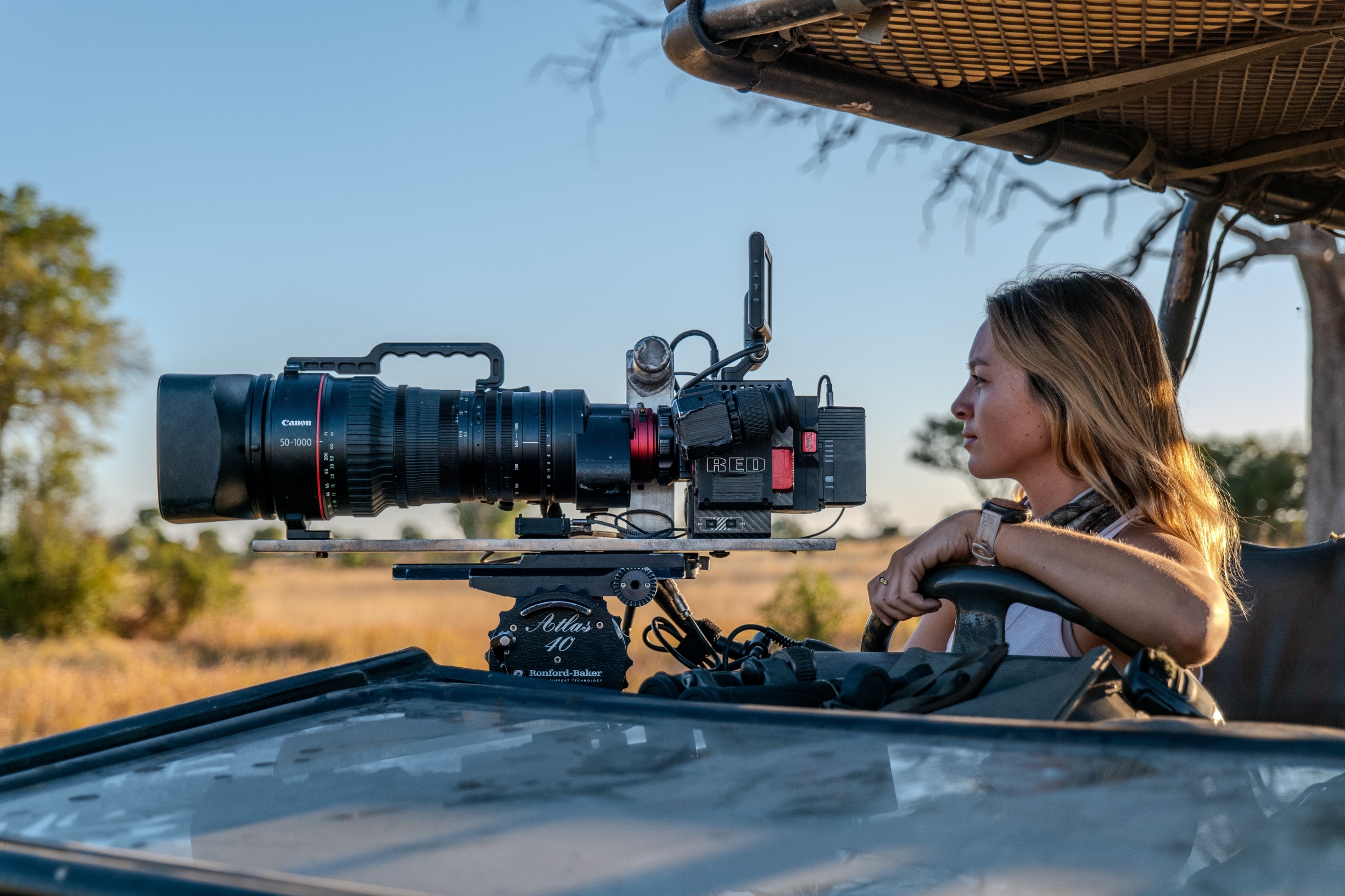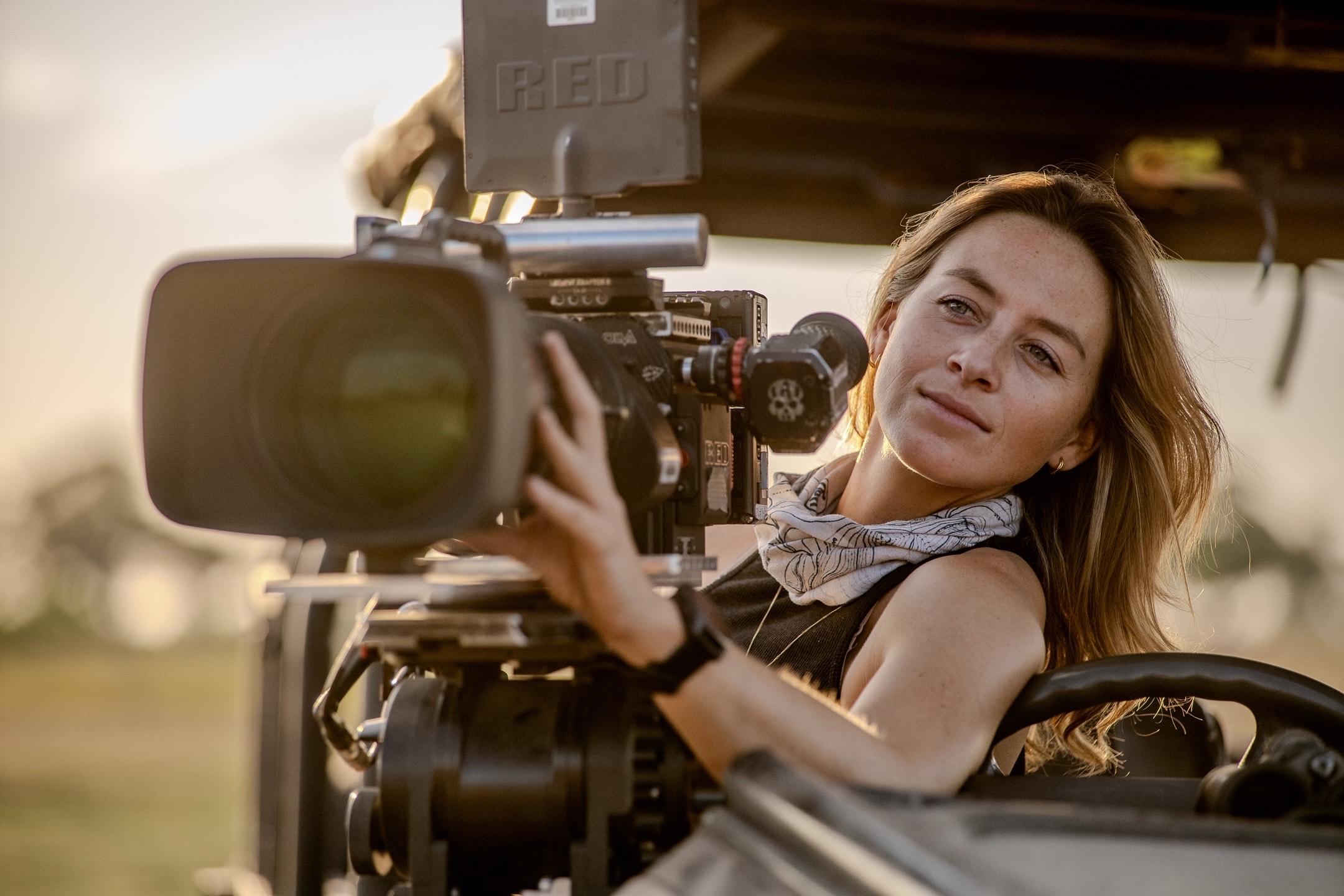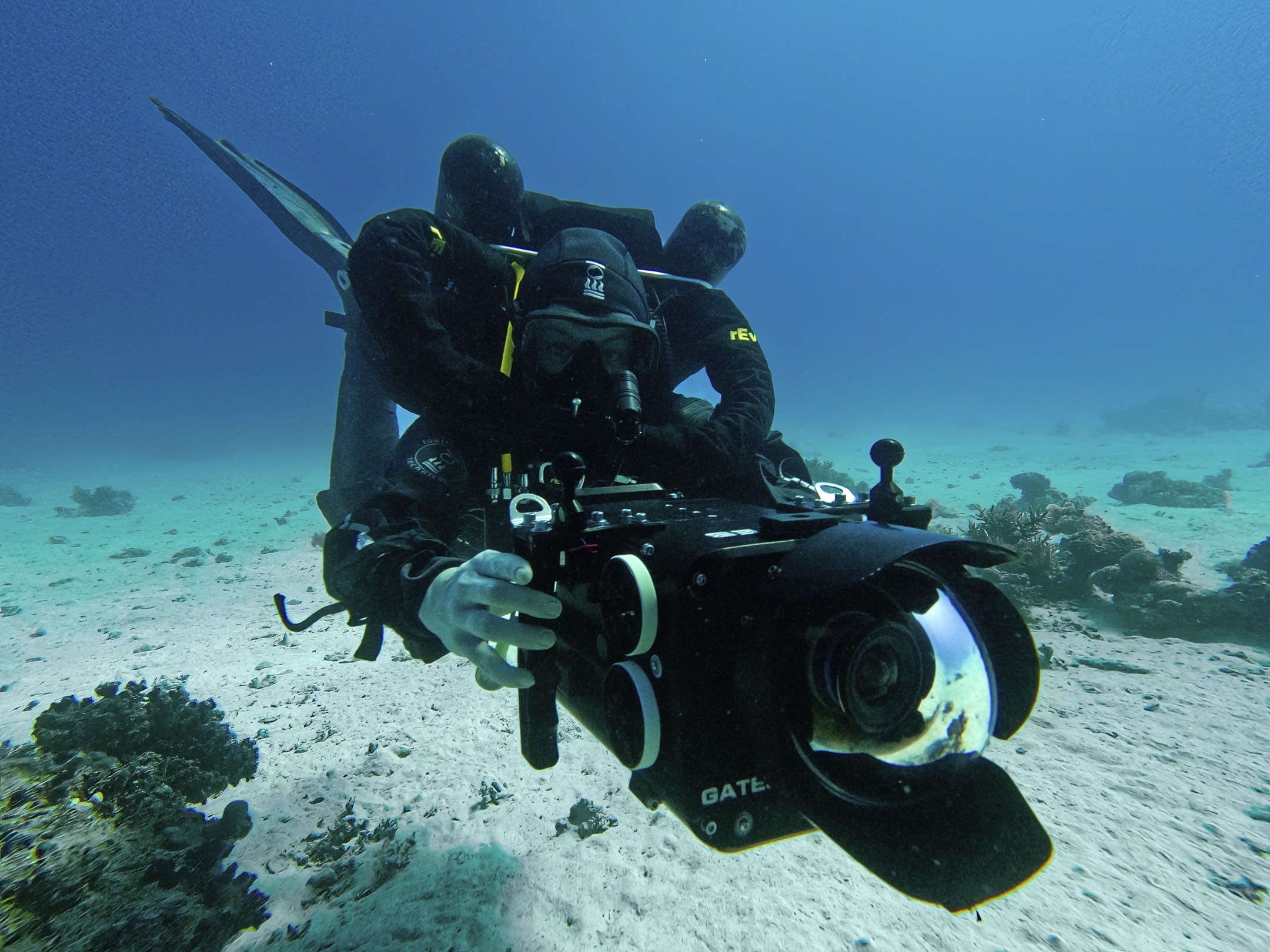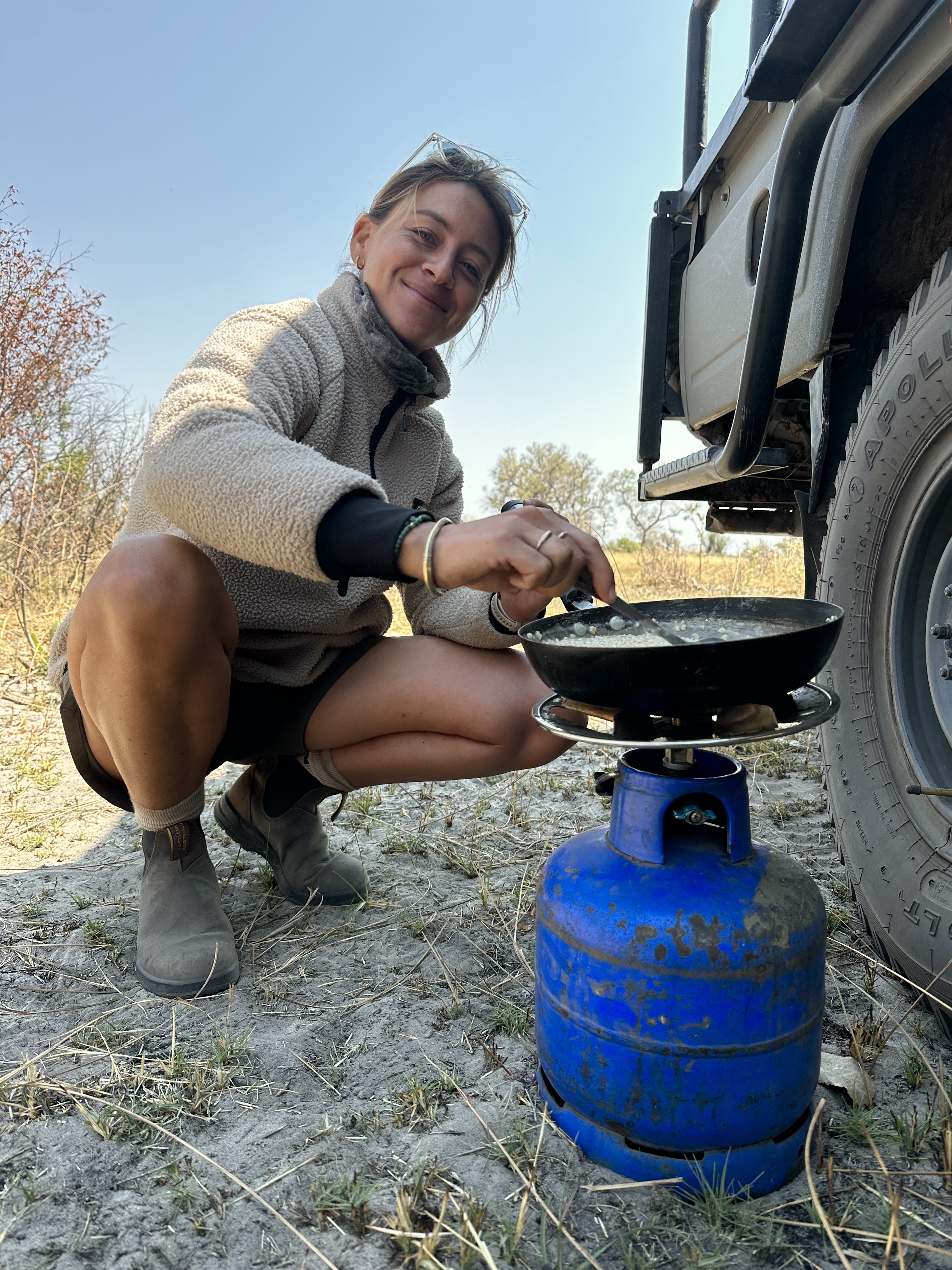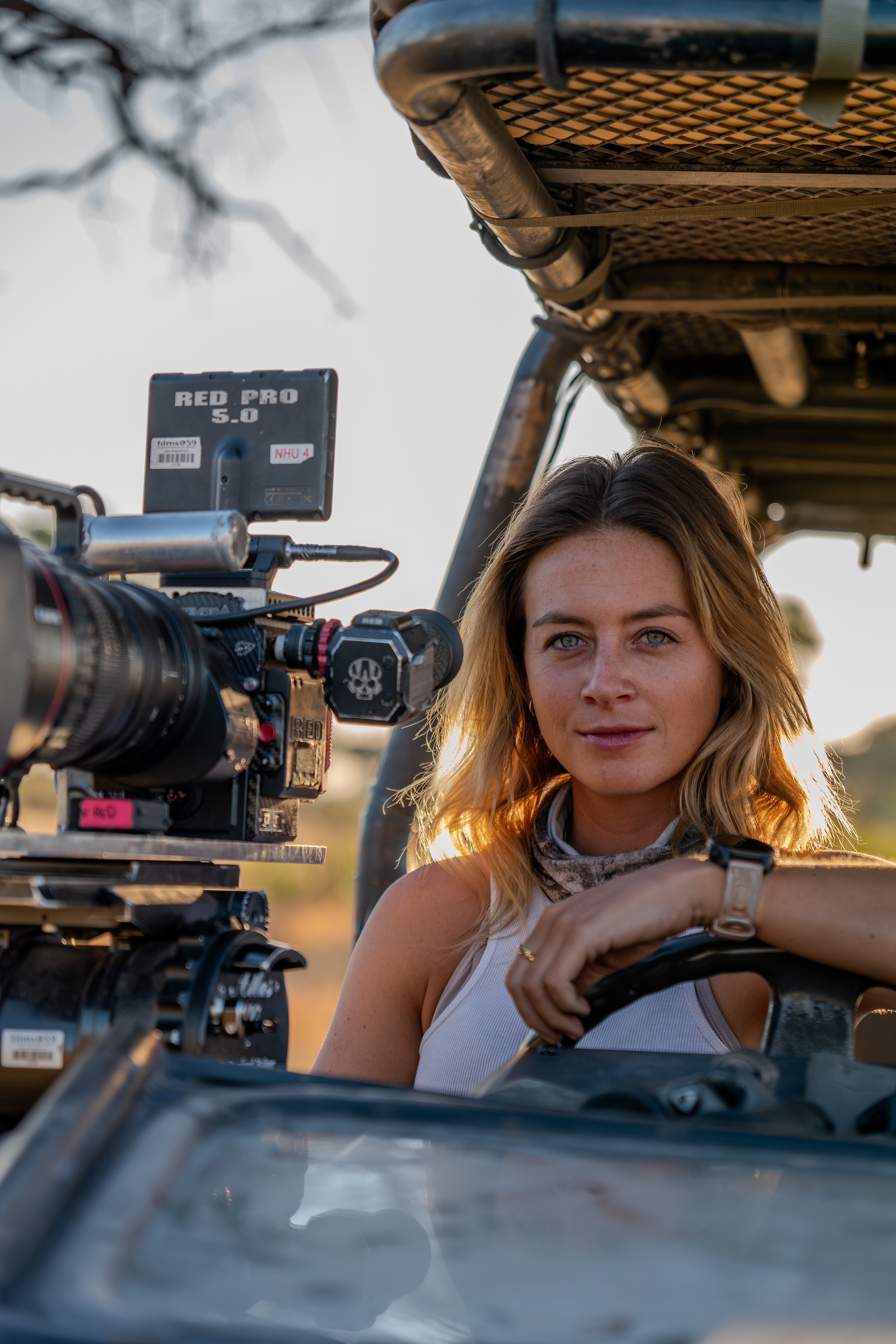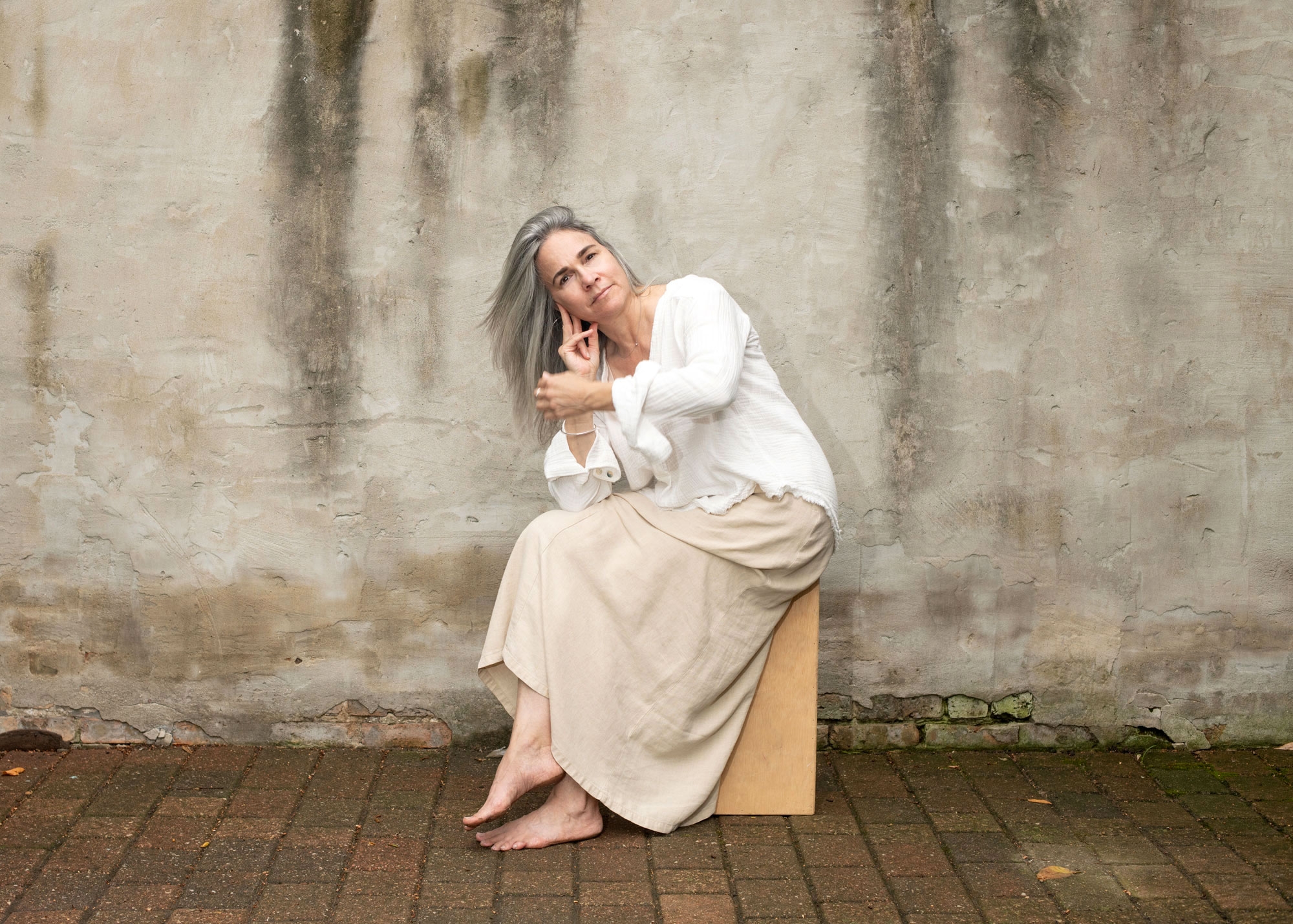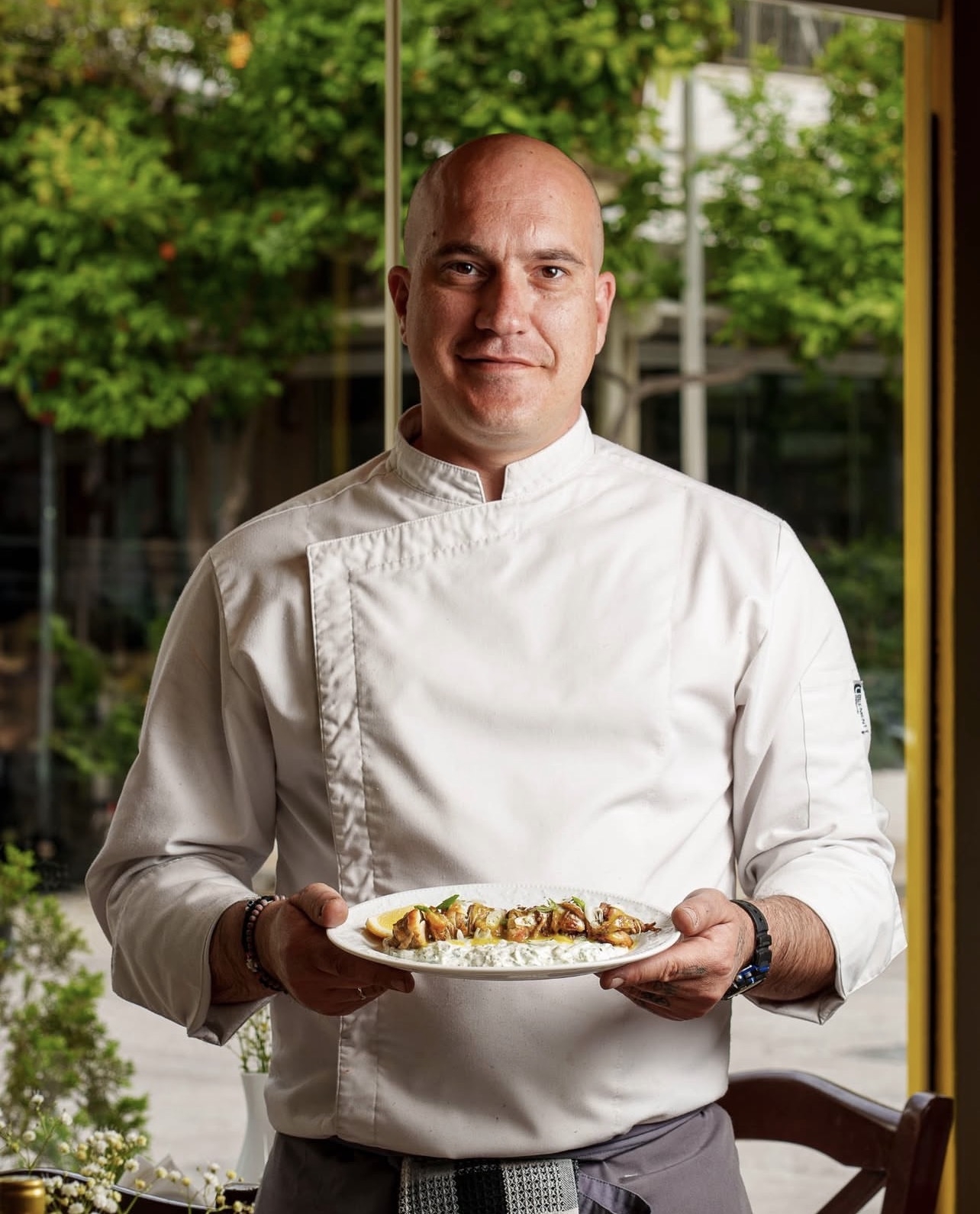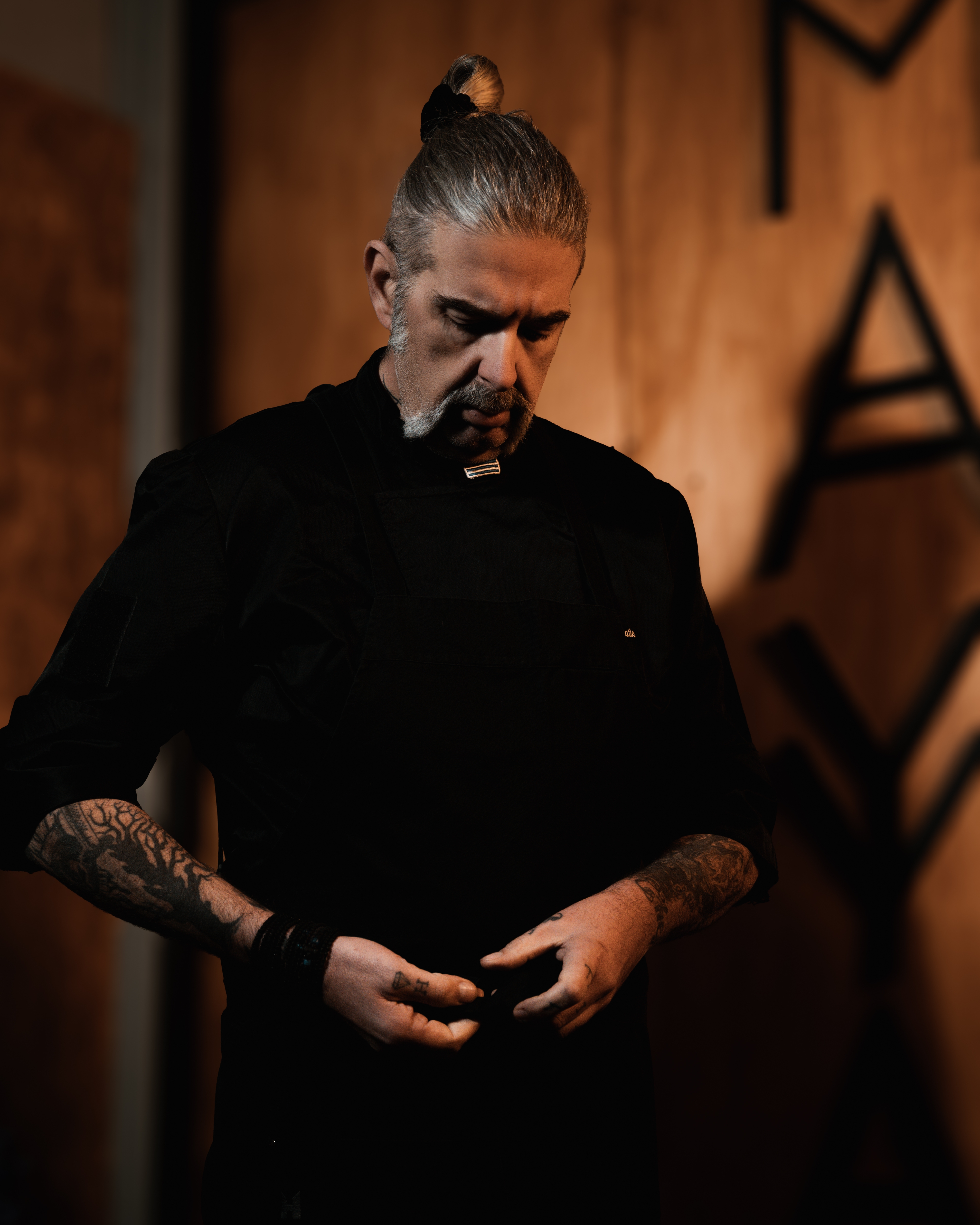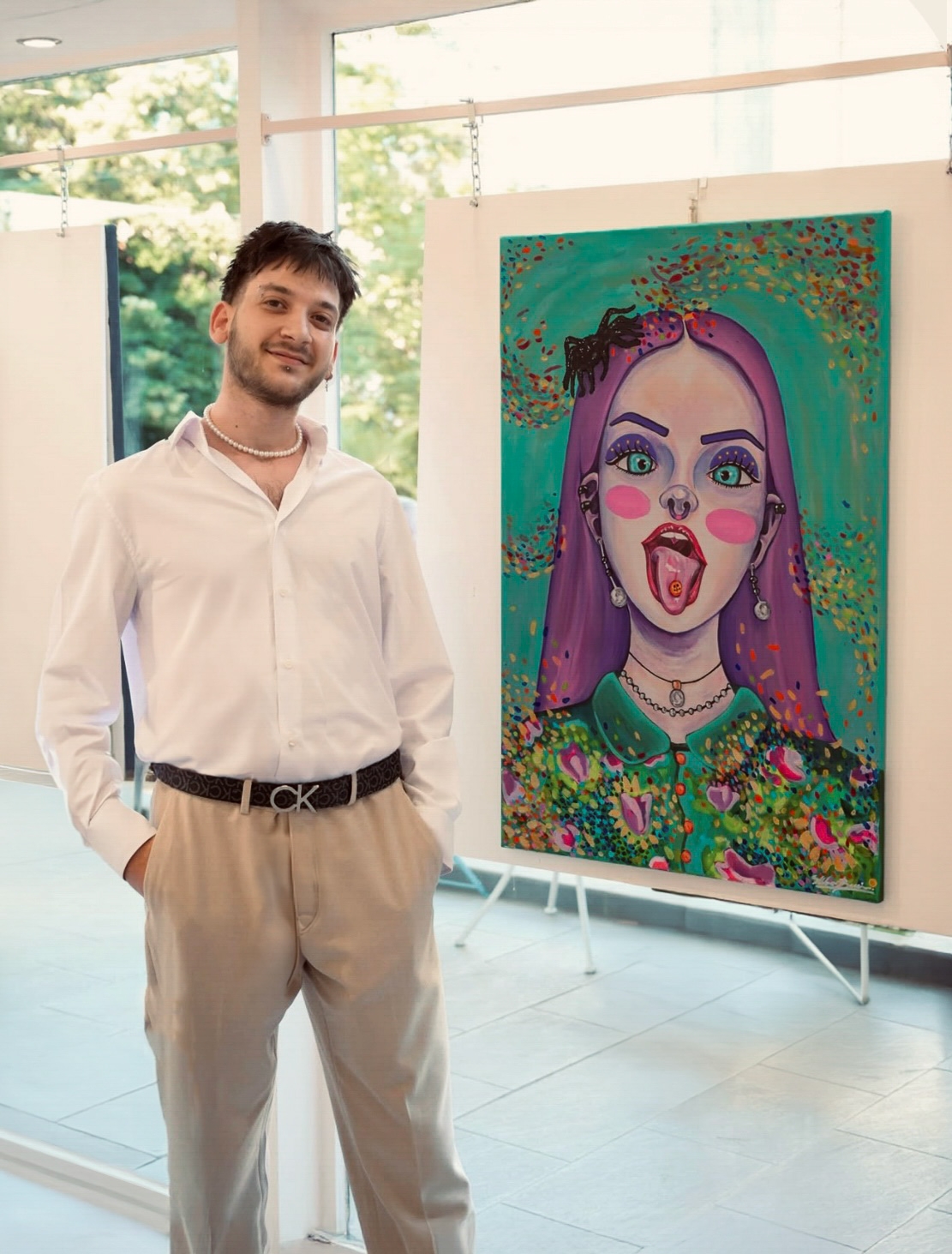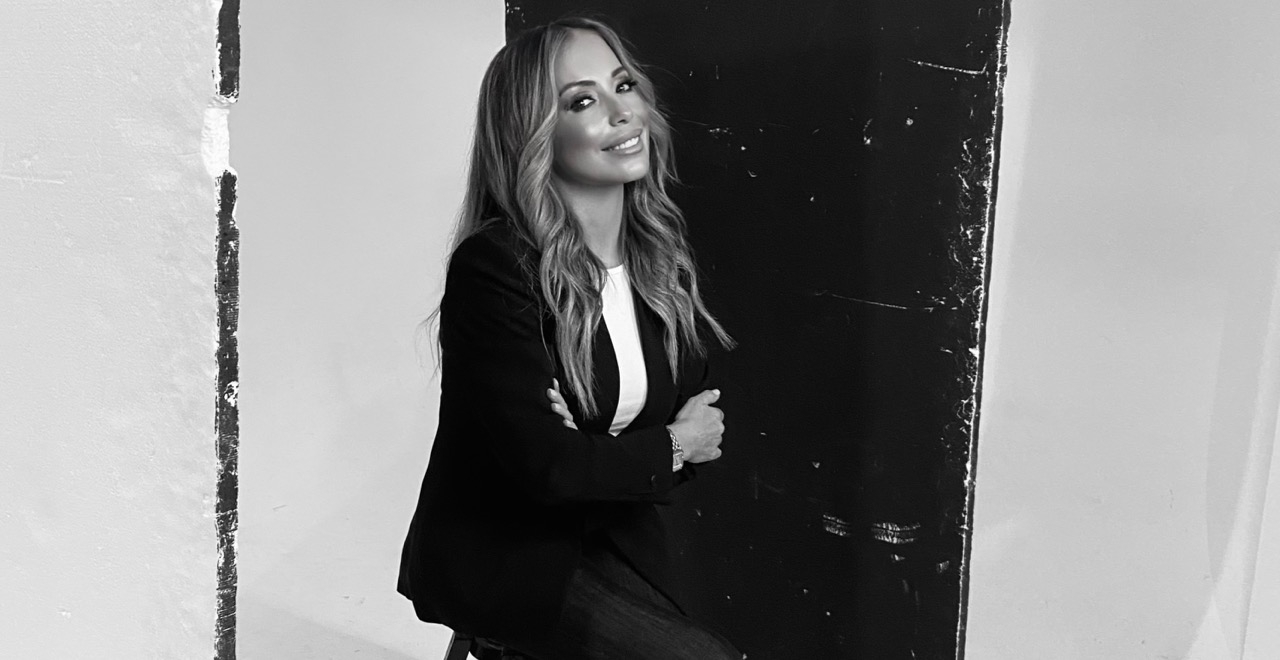What inspired you to pursue a career in wildlife filmmaking?
I’ve always loved the natural world—growing up, my sister and I spent our summers on the island of Aegina, mostly in the sea, diving down amongst the fish and collecting sea urchin shells.
At the same time, I was really into the idea of being a spy I had a whole backpack full of ‘spy kit’ that I’d carry around. It seems like an odd combination of interests- but the irony is that this led to a life of me ‘spying’ on animals.
I picked up a camera and started making videos when I was a teenager & loved it… the rest is history! (My adult spy kit of cameras and drones is something 7-year-old me could only have dreamed of!)
There’s something so humbling about seeing animals in their natural habitat and my aim is to capture these moments in a way that connects with people.
My dad, Alexandros, who passed away when I was little was an amazing photographer - so I think the love of cameras is in my genes.
As a member of Generation Z, how do you see the role of younger generations in wildlife conservation and environmental protection?
Honestly, it feels like the responsibility for saving the planet has fallen largely on our shoulders. We’ve inherited a world that’s at a critical point, and it’s tough to ignore that.
But at the same time, I think that urgency has given us a real sense of purpose. Our generation has a unique advantage—technology, fresh perspectives, and a genuine desire to make a difference.
We’re more connected, more aware, and way more ready to take action than ever before. I’m really hopeful that new ideas and tech can help us turn things around. The thought of my great-great-grandchild never seeing a lion in the wild?
That’s devastating. We can’t let that happen.
How has state-of-the-art filming technology enhanced your ability to document wildlife and their behaviors?
Advancements in filming technology have been game-changing. Today, we can get incredibly close to our subjects without ever physically intruding on their space—thanks to tools like drones with powerful zoom lenses and remote rigs.
This is essential because it allows us to observe authentic, undisturbed behaviour, which is where the real magic lies.
Watching an animal that is completely relaxed in its natural environment is one of the most rewarding parts of the job. In a nutshell - tech has given us the ability to tell more intimate and accurate stories, while also respecting the integrity of the wild.
Can you share a pivotal moment or project that significantly shaped your career?
Working on ‘Big Cats 24/7’ (available to stream on BBC iPlayer and PBS) was a dream project for me. It was also the first time I went from being behind the camera to also being in front of it, which was an interesting & unexpected transition!
Unlike the typical “blue-chip” nature films where you’re on a tight timeline, just trying to capture one specific moment or behaviour, this project allowed me to spend much longer periods of time with individual animals. That meant I could really get to know them…and fall in the love with them.
Having that time to connect with specific subjects let me capture moments and behaviours that just can’t be planned. It taught me the value of patience whilst watching animals & also to always be prepared for anything at any moment, because things can go from 0-100 in an instant.
What changes or advancements in wildlife conservation do you hope to see in the coming years?
While aspects of technology scare me—particularly AI and the risk of jobs being replaced—I’m also deeply inspired by the potential for innovation in conservation. I’m excited by how technology is being used in creative and positive ways.
From coral-building robots helping to restore reefs to satellite technology adapted from NASA’s star-mapping systems to track whale shark migrations—these advancements give me hope.
I want to see more integration of tech with grassroots conservation efforts, especially in the ocean, where so much is at risk.
What is the most challenging aspect of your job?
The hardest part is definitely being away from family and friends for so long. I’ve missed out on so many important moments—like my Yiayia recently turning 103! Physically, it’s a tough gig too—long, uncomfortable days where you’re waiting around forever for a few seconds of magic.
Whether I’m stuck in a truck all day watching sleeping lions, trekking through a jungle whilst tracking gorillas, or diving in freezing waters around icebergs, it takes a lot of stamina and mental strength.
But when that once-in-a-lifetime moment happens, it makes all the long hours and discomfort worth it.
What does it take for a woman to make a mark in wildlife cinematography? Did you have to face any challenges?
Absolutely. Being a woman in a historically male-dominated field hasn’t been easy. I’ve had people comment on my body, tell me I’m not built for this kind of work, or assume I couldn’t handle the technical side of things.
That kind of doubt only fuels me more. I was often the only woman in a technical role on location, and while that used to feel isolating, I now see it as motivation to open more doors.
Things are beginning to shift, and I’m seeing more and more talented women and girls entering the field.
Representation is powerful—seeing women in these roles shows others that this is not only possible but essential. I also think that women tell stories in slightly different ways- which can often bring a unique angle to a narrative.
What’s a typical day like?
Every day on location is different, depending on where you are and what you're filming. But in the bush, a “typical” day can last upwards of 15 hours.
You’re up well before dawn to catch the golden hours when the cats are most active, and then it’s a long haul of observation, patience, and readiness.
Which can vary from following a cheetah that’s non-stop moving all day making endless hunt attempts, or being sat for hours watching lions do a whole lot of nothing!
We cook our own meals on our trucks, do our washing up & sleep out under the milky way.
There’s very little glamour—just a lot of grit, adaptability and the crucial ability to make good conversation with whoever’s sat next to you.
What are your greatest achievements that fill your heart?
One of the things I’m most proud of is hearing from children who say they've been inspired by watching a show that I’ve made. Some have written to tell me that my work made them realise they love wildlife too, and that they now want to pursue a career in conservation.
Knowing that I’ve played a part in sparking that passion in future eco-warriors is incredibly fulfilling. That is why projects like Big Cats 24/7 are so important because they show the true personality, complexity, and vulnerability of animals—not just as distant, intangible numbers.
Can you share a project or goal you’re currently working on or excited about?
Big Cats 24/7 Season 2 will be out later this year (2025), which I’m incredibly excited about. It’s a chance to reconnect with some familiar characters and dive even deeper into their world.
I’ve also recently worked on another series that focuses on a different mammal - what’s most exciting about this new project is that we were seeing behaviours that could actually reshape what science thought it knew about this species.
It's super exciting to be at the frontier of both storytelling and scientific discovery - which is the whole reason I wanted to do this job in the first place!
Anna is a BAFTA nominated wildlife filmmaker, conservationist, and presenter who has worked across the globe filming wildlife while both above and below water, in some of Earth's last great wilderness, from diving around icebergs in Antarctica, to filming gorillas in the jungles of the Central African Republic. Best known for her work as a cinematographer and presenter on 'Big Cats 24/7' for BBC2, Anna uses state-of-the-art filming technology to document and track wildlife, which has allowed her an unprecedented view into the lives and behaviours of animals.
As a member of Generation Z, Anna is passionately committed to conservation and the protection of the natural world.
She believes in the power of film to inspire change and hopes to leave a lasting legacy for future generations to safeguard our planet's wildlife and wilderness.

